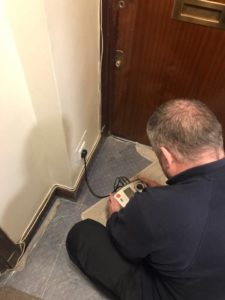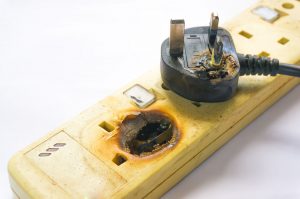In recent news, the Housing Minister has agreed to tighten up electrical safety rules in rental accommodation. These extra measures will provide greater protection to the tenants, but also to the Landlords.
Landlords have an obligation to ensure their rental accommodation is meeting electrical safety standards. The British Standards recommend that Landlords have an Electrical Installation Condition Report (EICR) every 5 years OR at the change of tenancy. However up until now there has been no legal requirement to ensure that the inspectors they use for the EICRs have specific qualifications or a certain level of competence. Therefore, the Housing Ministers will also now be publishing guidance which highlights the minimum level of qualifications and competence required of the inspectors. This provides extra reassur ance to both the Landlord and Tenants.
ance to both the Landlord and Tenants.
What is involved in an EICR?
An EICR involves a skilled person carrying out inspection and testing to ensure the installation is of a satisfactory condition. The process is mainly a visual inspection to ensure there are no exposed wires, damaged sockets etc. Electrical tests will also be carried out to confirm disconnection times in the event of an electric shock. The main purpose of an EICR is to test the internal wiring of a building. The inspection should highlight any defects which could potentially cause a fire or affect the safety of persons.
At Fulcher Edwards we take pride in always providing a high standard of electrical safety. This is why each year we undergo rigorous audits to meet NICEIC, SafeContractor, and BAFE accreditations. However not all Electricians put the same level of importance on electrical safety and standards. Therefore these extra measures will provide assurance to the tenants that their home is safe, but also their will be a material improvement to the Landlords property. Failing to comply with these new measures will result in financial penalties for the Landlords.
If you are a Landlord or Tenant and would like to have an EICR carried out on your property. Please do not hesitate to contact us HERE.




